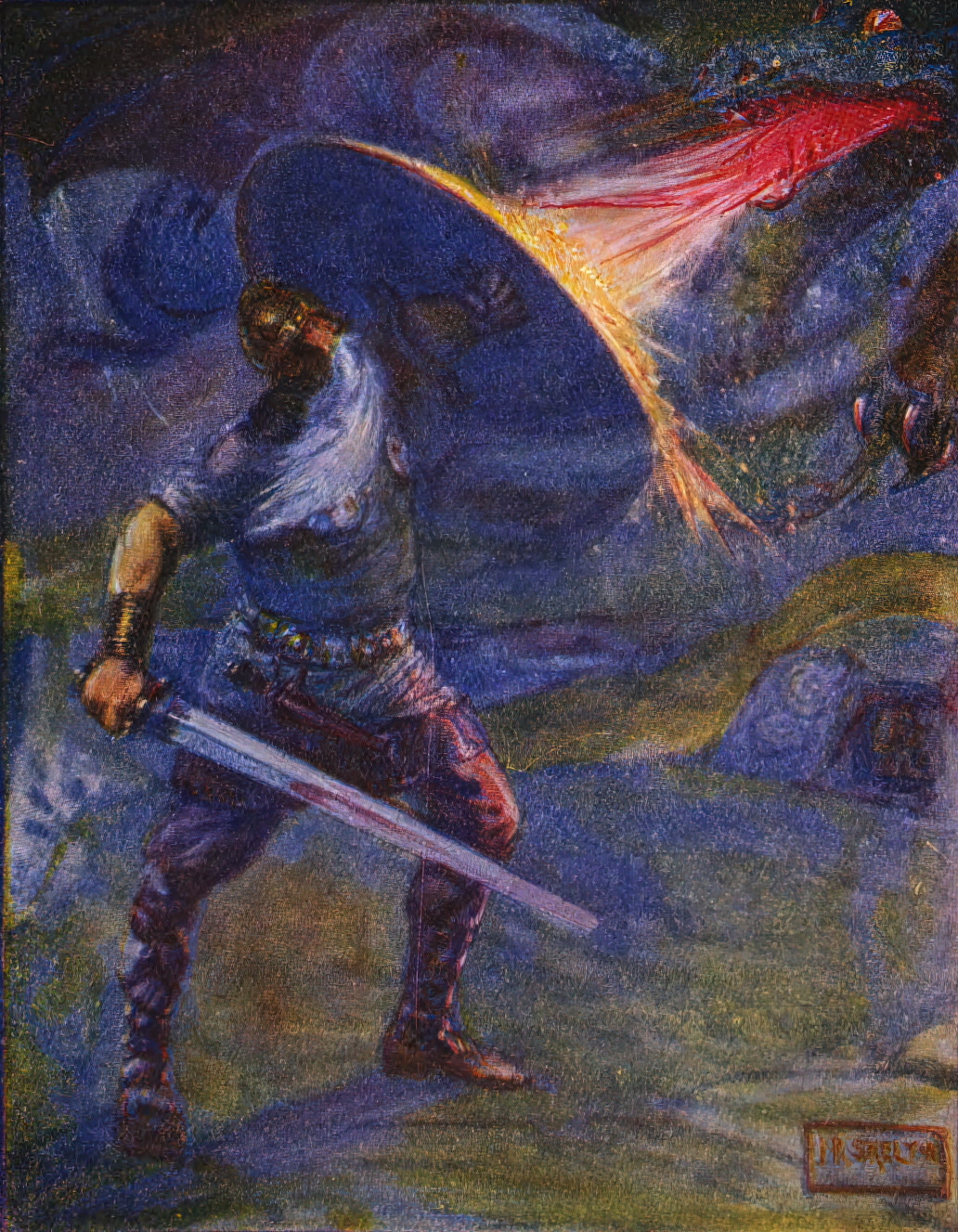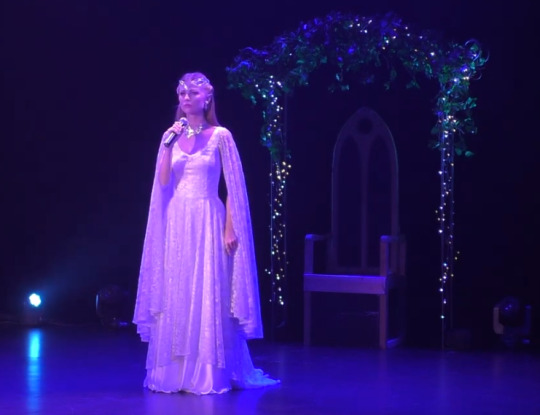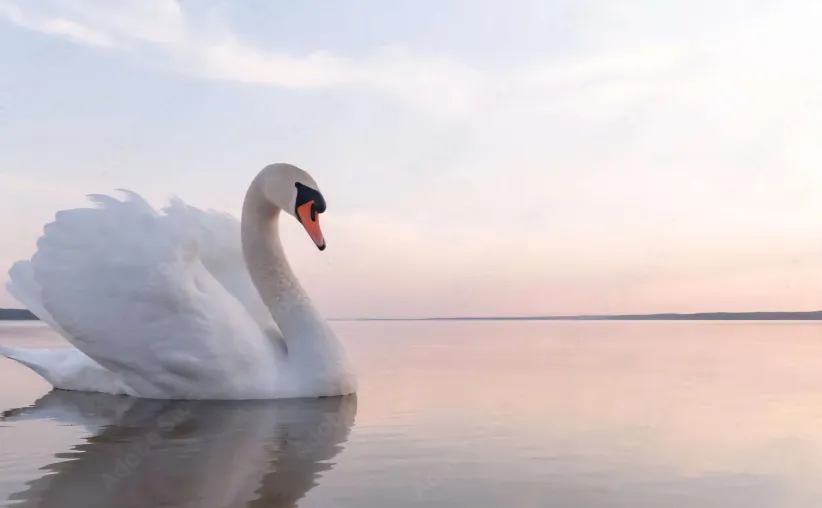
(Image credit: J. R. Skelton, 1908)
Summary: Hwæt! New to Innumerable Stars this year is Tolkien's prose translation of Beowulf, the Old English epic which underpinned his academic career and informed so much of his legendarium. This is a tale of heroes and monsters, loyalty and sacrifice, history and kinship, memory and grief. Beowulf does battle with the terrifying Grendel, with Grendel's lake-dwelling mother, and finally, in old age, a dragon. Throughout the poem there are a number of digressions - on the Swedish-Geatic wars, on Biblical stories, and on other tales and legends of the old Germanic world. Scholars are divided on how much these help or hinder the narrative; for Tolkien (and later scholars such as Shippey) they are important reflections both of the history of the North and of the themes within the poem's main narrative.
Why should I check out this canon? For Tolkien completists this is a must-read. As with all his translations and non-Middle-earth texts, there are plenty of resonances and parallels with his more famous works - from the elegiac tone to the exchange with the wily old dragon (direct inspiration for Glaurung and Smaug), from the culture and history of Rohan and its linguistic links with the Shire to meditations on the nature of monstrousness. If you're already familiar with the source material then this is, as you would expect, a highly accurate and deeply considered translation. For those not yet familiar, Beowulf is a fascinating and important piece of literature in its own right, as Tolkien argued in his 1936 lecture 'Beowulf: The Monsters and the Critics', and if the original Old English looks daunting then this translation is as good a starting point as any. It's a strange read to contemporary eyes, and a bit of a puzzle - critics can't even agree whether the original poem is one text, two, seven, or eleven - but (for some of us anyway) that's part of the the appeal. Grab a copy and see if it casts a spell on you too.
Where can I get this? It was published in 2014 (together with Sellic Spell, two original lays based on the Beowulf legend, and a detailed commentary) as Beowulf: A Translation and Commentary. Your local bookstore or library should be able to help you locate a copy. (Note that the book doesn't contain 'The Monsters and the Critics'; that particular text is available in The Monsters and the Critics, and Other Essays.)
What fanworks exist already? AO3 doesn't tag the Tolkien version separately, so it's difficult to say, although I couldn't locate any fanworks based specifically on this translation. It's fertile ground for standalone and crossover creations, though, so go forth and tell of the glory of the Spear-Danes in days of old!





